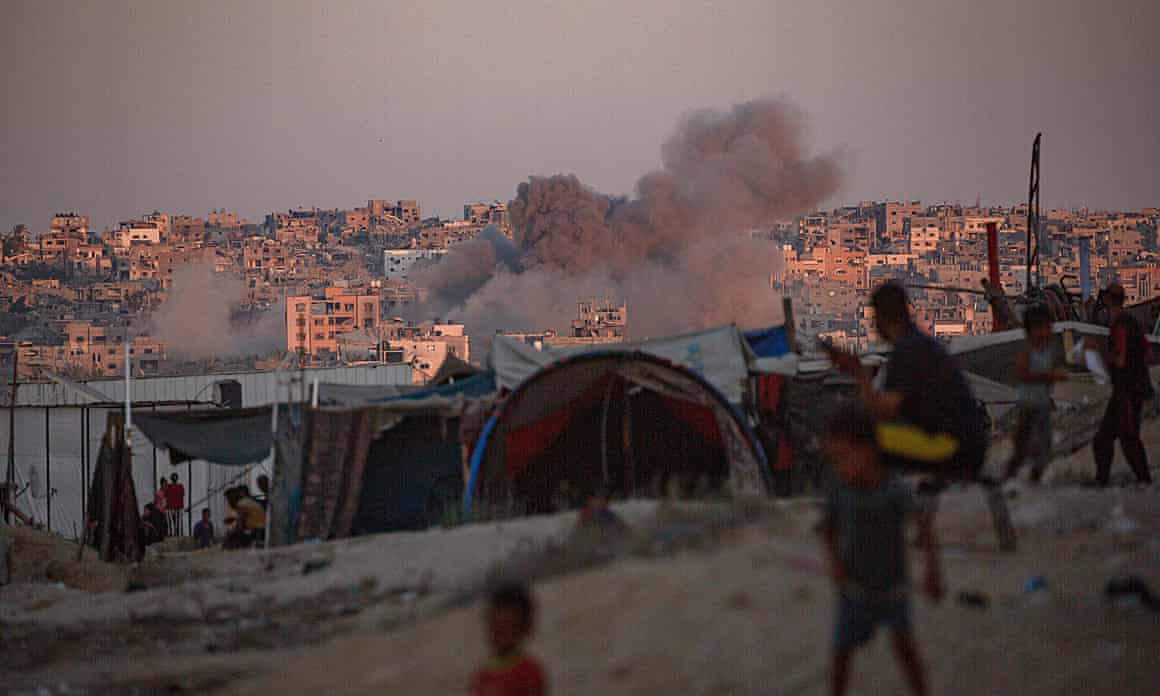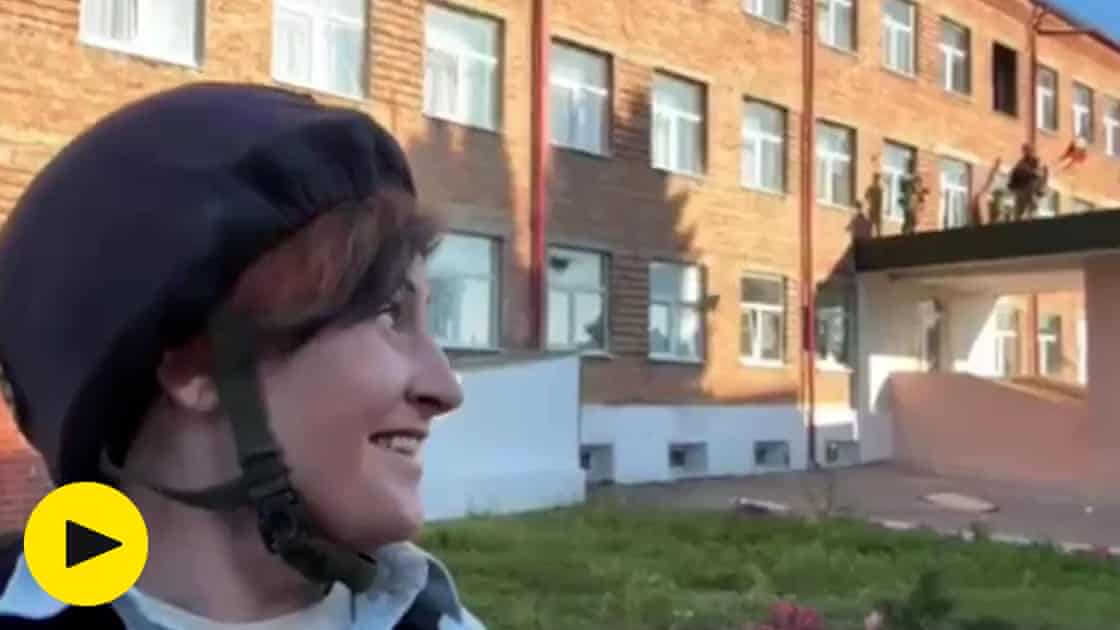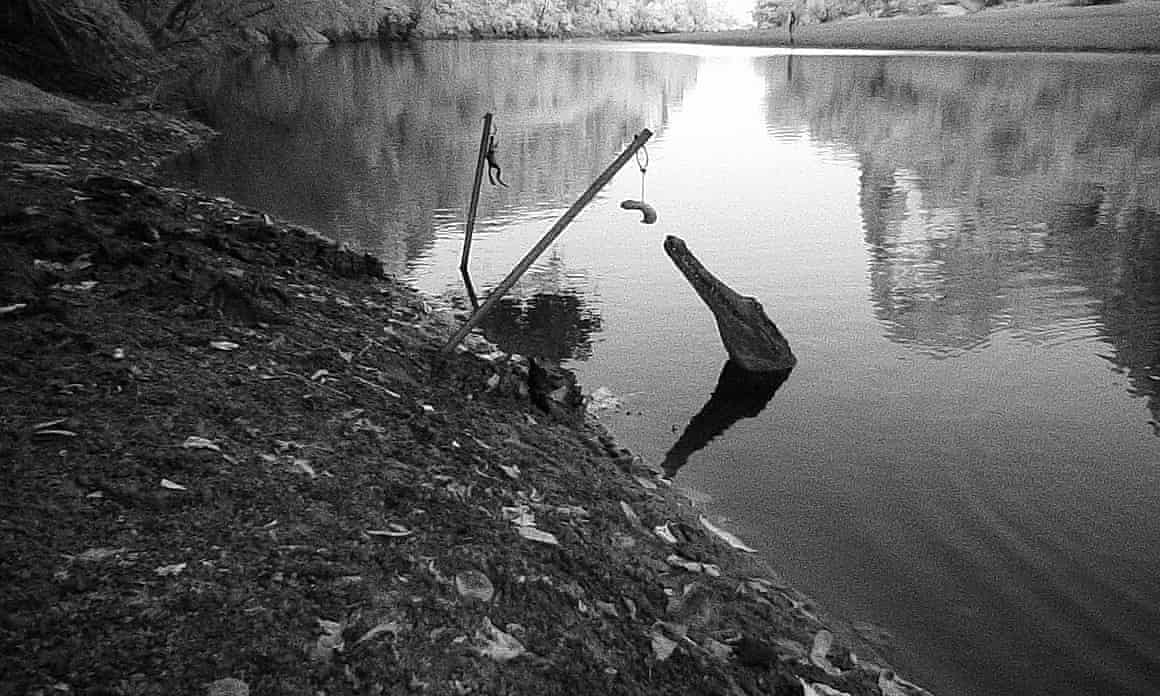| Support independent journalism |
| |
|
| 
|  | | | First Thing: Mpox outbreak in Africa is public health emergency, says WHO | | | Experts urge accelerated access to vaccines and testing. Plus, Columbia University president resigns | |  |  Tedros Adhanom Ghebreyesus, the director general of the WHO, said the mpox outbreak warranted the ‘highest level of alarm under international health law’. Photograph: Reuters
| | Jem Bartholomew
| | | Good morning. An outbreak in Africa of mpox, the disease formerly known as monkeypox, has been declared a public health emergency by the World Health Organization. The declaration must accelerate access to testing, vaccines and therapeutic drugs in the affected areas, medical experts urged, and kickstart campaigns to reduce stigma surrounding the virus. A new variant is spreading between people in the Democratic Republic of the Congo. As of 4 August, there had been 38,465 cases of mpox and 1,456 deaths in Africa since January 2022, including more than 14,000 cases and 524 deaths in the DRC alone this year. -
How is the WHO responding? Tedros Adhanom Ghebreyesus, the director general, said the situation warranted the “highest level of alarm under international health law”. The WHO released $1.5m from its contingency fund, and called on donors to help reach the $15m it needs for the response. -
What are experts saying? Trudie Lang, a professor of global health research at Oxford University, said: “I have heard so many people refer to this as being very similar to the early days of HIV.” Dr Ayoade Alakija, the chair of Africa Vaccine Delivery Alliance, said if the outbreak was in Europe, mpox would have already been considered a major international health emergency.
Israeli forces in Gaza ‘use civilians as human shields’ against possible booby-traps | | |  |  Smoke rises after an Israeli airstrike as internally displaced Palestinians sit next to their tents in Khan Younis. Photograph: Haitham Imad/EPA
| | | | Israeli soldiers are using Palestinian civilians as human shields in Gaza to enter and clear tunnels and buildings they suspect may have been booby-trapped, a leading Israeli NGO and newspaper have reported. The practice was so widespread across different units fighting in Gaza that it could in effect be considered a “protocol”, said Nadav Weiman, the executive director of Breaking the Silence, a group founded by Israeli combat veterans to document military abuses. The group has collected testimony describing the practice from veterans of the 10-month war in Gaza. The accounts they have heard match those reported in an investigation by the newspaper Haaretz, which claimed that the chief of staff’s office was aware of the practice. -
What are the details? Palestinian civilians, mostly young men, are picked up by Israeli soldiers, who dress them in Israeli army uniforms and send them into tunnels and damaged houses ahead of Israeli forces, soldiers told Haaretz and Breaking the Silence. Their hands are tied together and a camera is attached to their bodies as they go in. -
What’s the latest with ceasefire talks? A new round is expected to begin today, although expectations of success are low. Israel has hardened its position in recent weeks and Hamas has indicated it is unlikely to attend the talks in Qatar.
Columbia University president Minouche Shafik resigns over Gaza protests | | |  |  Minouche Shafik on Capitol Hill in Washington in April. Photograph: José Luis Magaña/AP
| | | | The president of Columbia University, Minouche Shafik, has resigned following months of criticism of her handling of campus protests over the war in Gaza. “This period has taken a considerable toll on my family, as it has for others in our community,” Shafik wrote in an email to staff and students. Shafik, whose tenure began in July 2023 and made her the first woman to head the prestigious university in New York City, sparked controversy with her decision to call the New York police department on to campus in response to student protests, drawing the ire of students and faculty. In other news … | | |  |  Women’s boxing gold medallist Imane Khelif, centre, was inundated with online abuse, particularly via X, which escalated after high-profile figures including Elon Musk and JK Rowling attacked her. Composite: Gonzalo Fuentes/Reuters/Aytac Unal/Anadolu/Getty/Joel Ryan/Invision/AP
| | | -
JK Rowling and Elon Musk have been named in a cyberbullying lawsuit filed in France by the Olympic champion boxer Imane Khelif. Khelif’s attorney says she was the victim of “misogynistic, racist and sexist” cyberbullying. -
Heavy rains in Sudan have killed at least 68 people, compounding hardship in a country that is already facing multiple crises. -
The Department of Justice is considering options that include breaking up Google, according to the New York Times and Bloomberg, a week after a judge ruled the Alphabet company had illegally monopolized the online search market.
Stat of the day: 200,000 Russians evacuated amid Ukraine incursion into Kursk region, Russia says | | |  | | | | Ukraine’s president, Volodymyr Zelenskiy, said on Wednesday forces were continuing to advance into Russian territory after their surprise offensive. Ukrainian officials have said Kyiv has no plans to occupy Russian territory and that the objective is to prevent Russian missile fire into Ukraine. At least 200,000 people have so far been evacuated from the border regions, according to Russian data. Don’t miss this: How a true crime producer documented his own rising horror | | |  |  John Balson in Japan in 2021. Photograph: Supplied image
| | | | Sirin Kale writes about the life and tragic death of John Balson. His symptoms began with dizziness, headaches, a lack of sleep and panic attacks. Over time, they grew worse. All the while, this beloved husband, father and son was wondering about the role his work as a true crime producer played in his illness. Climate check: Unprecedented 15 national temperature records broken in 2024 | | |  |  The World Meteorological Organization also reported that at least 10 countries have recorded temperatures above 50C so far this year. Illustration: Guardian Design
| | | | A record 15 national heat records have been broken in 2024, as weather extremes grow more frequent and climate breakdown intensifies. The geographic range of all-time national records is staggering. Mexico tied its peak of 52C (125.6F) at Tepache on 20 June. On the other side of the world, the Australian territory of Cocos Islands tied its all-time high with 32.8C (91F) on 7 April for the third time this year. Last Thing: How to stop crocodiles being poisoned? Teach them eating cane toads is like ‘a bad late night takeaway’ | | |  |  Researchers baited dead cane toads to attract freshwater crocodiles throughout the Fitzroy Valley in Western Australia’s central Kimberley. Photograph: DBCA
| | | | During infestations of cane toads, whose bodies contain poisonous toxins, Australian crocodiles can eat so many they die of poisoning. So researchers have been injecting dead cane toads with nausea-inducing chemicals – lithium chloride, a strong salt – to train them to avoid the amphibians. It’s showing promising results in protecting the crocs. “[It’s like] a bad late night takeaway,” one scientist said. “You remember that taste and you often swear off that food for a very long time, so it’s a relatable experience.” Sign up | | | | | | First Thing is delivered to thousands of inboxes every weekday. If you’re not already signed up, subscribe now. Get in touch If you have any questions or comments about any of our newsletters please email newsletters@theguardian.com | |
| A message from Michael E Mann, presidential distinguished professor, University of Pennsylvania and one of the world’s most influential climate scientists, on behalf of the Guardian.
—
Fellow Guardian reader,
News reporting will play a major role in driving the political change we need to keep global warming below catastrophic levels.
In my view, the Guardian does some of the best reporting around on the climate. It doesn’t hold back from describing the devastating consequences of the climate crisis or from calling out those who engage in denial and delay.
By contrast, media organisations like Rupert Murdoch’s News Corp bear as much culpability for the predicament we’re in than anyone else on Earth. Of course, they haven’t acted alone. Rightwing politicians, plutocrats and bad actors like Vladimir Putin and the Saudi royal family have joined them in promoting denial, deflection, and delay.
It is well past the time for fence-sitting: media outlets must call out bad actors so there is a public penalty for their misdeeds.
If, like me, you appreciate the Guardian’s reporting on the climate crisis, you can help fund their independent journalism today by clicking here.
While we certainly must drive home the urgency of climate action, we also need the kind of coverage often seen in the Guardian that emphasises the agency that we have. Messages of despair can potentially lead people down the path of inaction rather than action.
It’s in that spirit of hope that I ask you today to support journalism that acknowledges the scale of the challenge ahead but also challenges political leaders to do more and share ideas for major systemic change. | | |
|
 | Manage your emails | Unsubscribe | Trouble viewing? | | You are receiving this email because you are a subscriber to First Thing: the US morning briefing. Guardian News & Media Limited - a member of Guardian Media Group PLC. Registered Office: Kings Place, 90 York Way, London, N1 9GU. Registered in England No. 908396 |
|
|
|
|
|